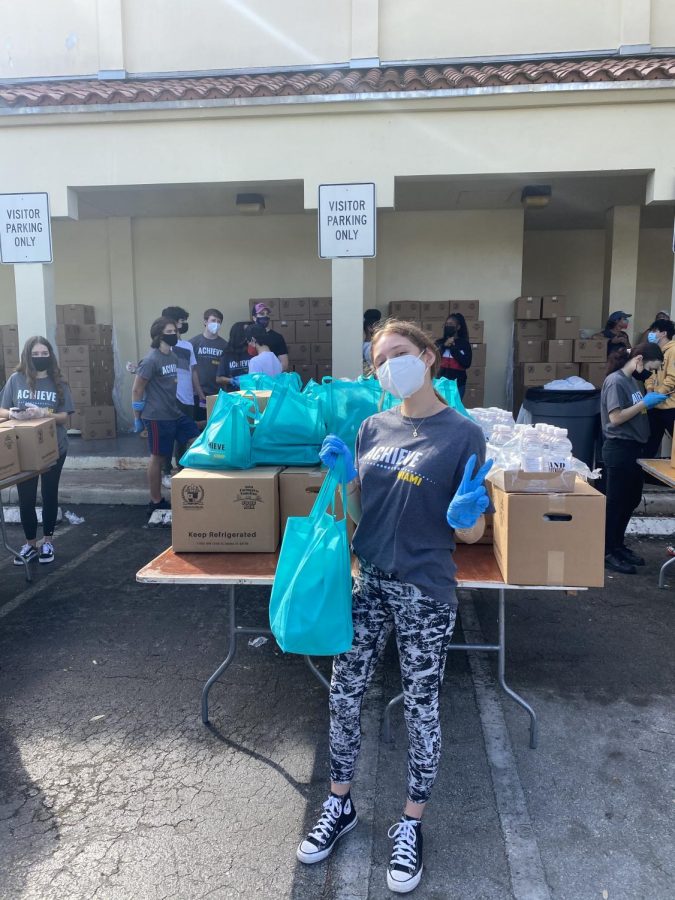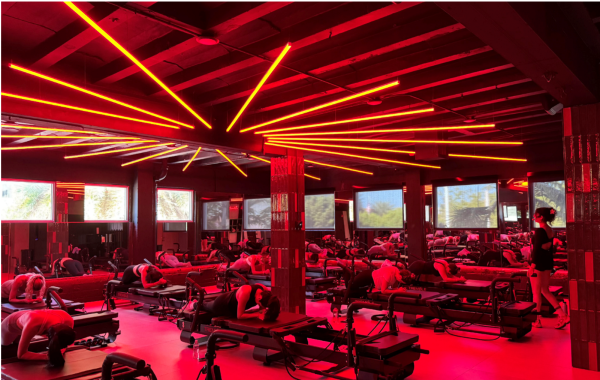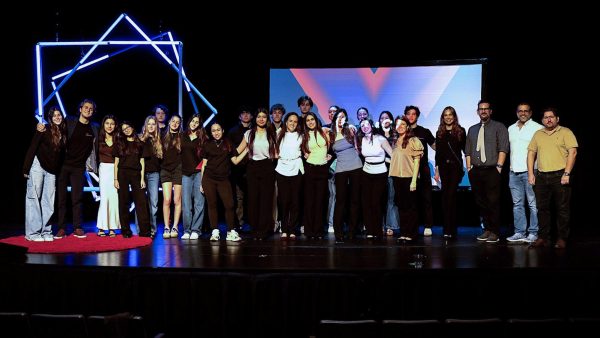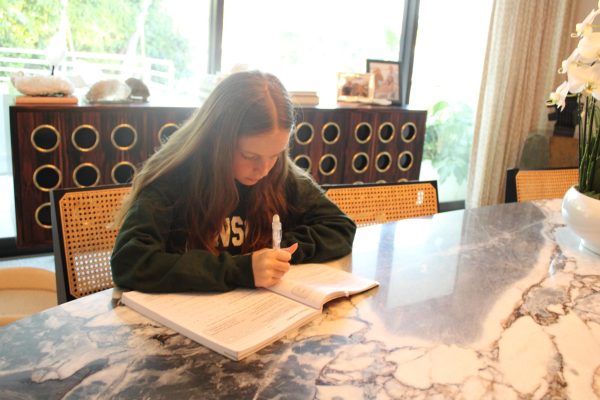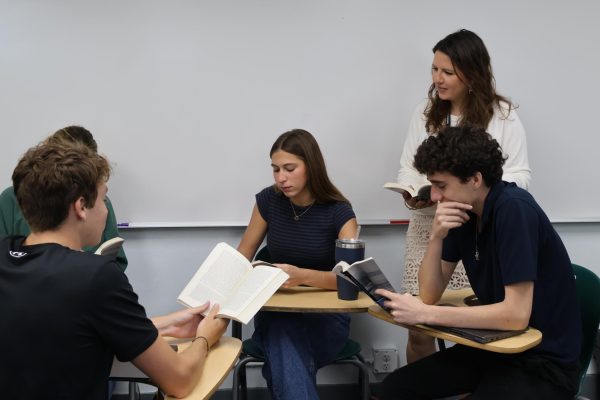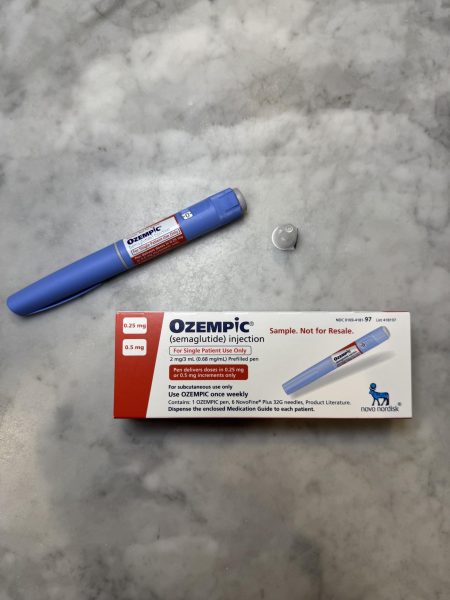COVID-19 takes a toll on students’ ability to volunteer in a hands-on way
Ava Levinson ’21 works a food drive for Achieve Miami at Booker T. Washington high school.
The traditional way of participating in service clubs has changed since March of 2020. Most of the volunteer clubs typically involve in-person activities that allow RE students to connect with those who are less fortunate and/or those who experience intellectual and developmental disabilities. However, due to the COVID-19 pandemic, these in-person interactions have been put on hold, raising a new question for RE students: What does service look like now?
The 2020-2021 school year began with another another big change to the world of service: the implementation of the new Volunteer Service Council, led by Mrs. Jenny Carson and Ms. Laura Miller. The council offers the opportunity for students to volunteer with any service club without being restricted to the two or three of which they are members. According to the VSC website, the council is made up of nine committees “so RE students can easily find a variety of volunteer opportunities that match their interests.”
Elanah Arnold ‘21, a member of the committee that focuses on people with disabilities, explained that “this year we had to reimagine what service means in this category.”
A club like Best Buddies involves building relationships between the students at RE and those at Easter Seals, a community for those with intellectual and developmental disabilities. In a typical year, the students go for a visit, these relationships strengthen, and, according to the advisors at the center, those with I.D.D. gain motivation to learn and thrive.
COVID-19 has put a large dent in the ability to maintain those relationships in a safe way. Arnold said that “while we are still in the planning stage of virtual connection activities, we have done two card drives, one during thanksgiving and one during Christmas, to maintain the relationships with clubs such as Best Buddies.” Certain drives such as card drives or food drives allow for both parties to interact in a safe manner.
For other service clubs, COVID-19 has forced a change in mission not just because old interactions are impossible but because there is greater need than ever before. Achieve Miami, a club which allows older high school students to tutor and work with young elementary students at inner city schools to strengthen their reading and writing skills, is now targeting helping families as a whole rather than just their children. Since the beginning of the pandemic, Achieve has organized food donations and drives to help families in need during this financially challenging time.
Before Christmas, five RE students helped put together about 300 goody bags for children when families would pick up their food. As Ella Rubell ‘21 put it, “it was bittersweet to see those children so excited to see us.”
The division of the council revolving around animal welfare has adapted to the pandemic as well. During normal times, people in this section would travel to and volunteer at animal shelters. Although the animals do not necessarily carry the virus, the in-person interaction is too risky for the RE community now.
“We usually volunteer frequently at animal shelters, and since we’re not allowed to go in person, we have been trying to do more supply drives to help the shelters out,” said Emma Rosenthal ‘21 said.
As the pandemic continues to take its toll, the RE community is making significant efforts to maintain these relationships with outside organizations. But one thing is clear: in the era of social distancing, what it means to perform service has changed.


